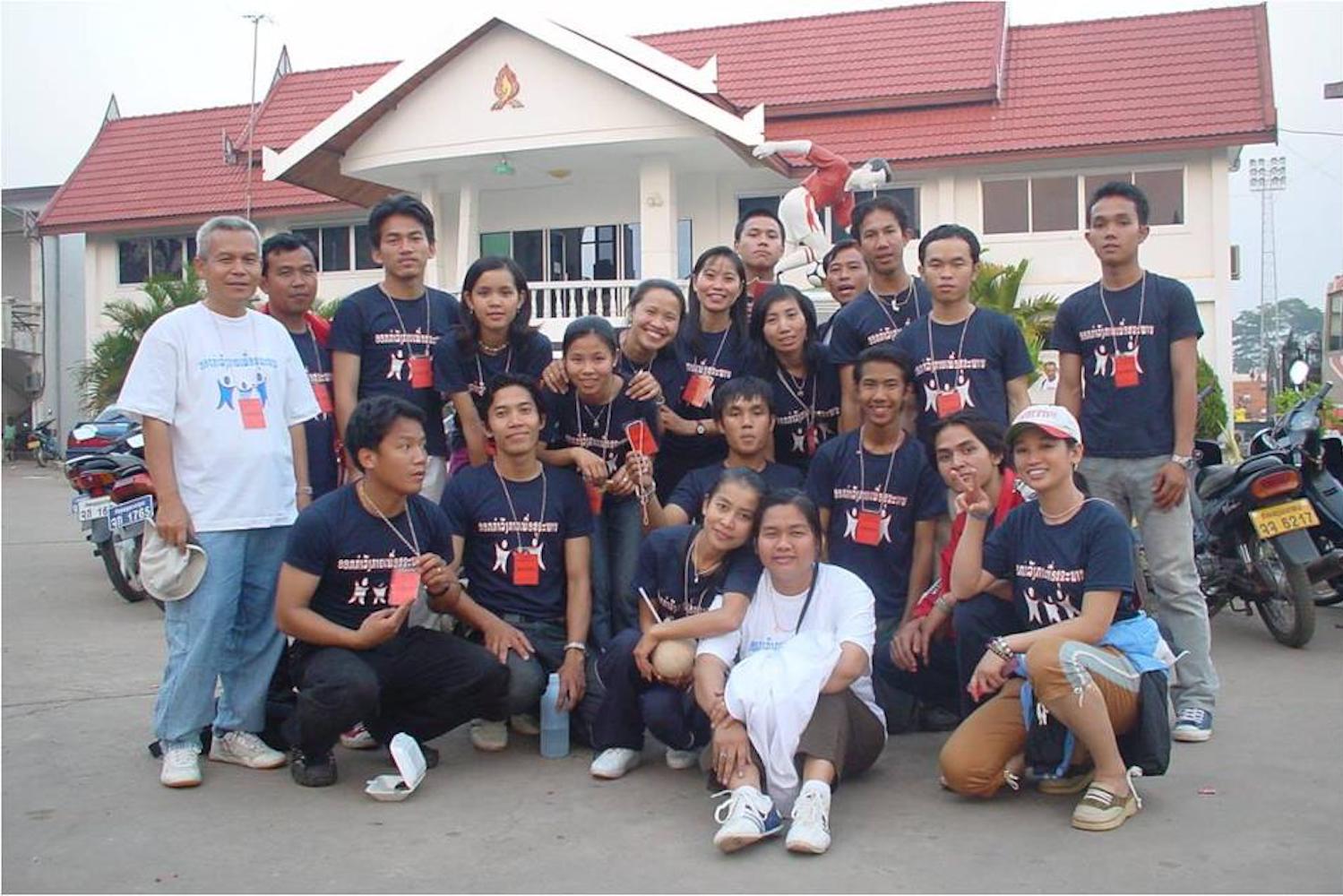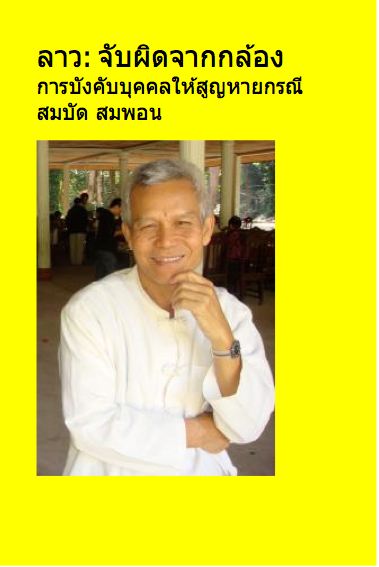Today (August 30) is the International Day of the Disappeared. Shui Meng has shared the following letter with friends and colleagues to call attention to this terrible practice.
A number of groups and media organisations are doing research on the number and nature of Enforced Disappearances in Laos. If you have any verifiable, documented evidence, please share it.
Dear All,
August 30 marks the International Day of the Disappeared. In many Asian countries, there are activities marking the day to show solidarity with the victims of Enforced Disappearances.
Although Laos is a signatory to the UN Convention Against Enforced Disappearances, and many other human rights conventions and protocols, and despite receiving substantial assistance from development partners for awareness and capacity building on HR issues, there is little awareness or even recognition that Enforced Disappearance is an HR issue in Laos.
In fact, in HR terms Enforced Disappearance is considered the “Mother of HR Violations” because a disappeared person is a “non-person,” and until the person’s whereabouts and proof of life or otherwise are known, the family is left in limbo; left waiting without any possibility of “closure”; left hanging between hope and despair. Nobody, except those who have experienced such violations, can even describe the agony and trauma they face every minute of the day, and outsiders can never understand those feelings and emotions.
I write this not because I am venting my feelings, but to urge you all, as development practitioners and HR advocates, to do more about raising awareness of the issue of disappearances in the HR context of Laos.
There are many cases of disappearances in Laos, more than are admitted, because the family members of the victims are too afraid to speak or reach out for help. Recently, I wanted to reach out regarding one case which was reported to the Working Group on Enforced or Involuntary Disappearances, but was told that the family wants it to remain confidential. Such is the scale of fear, and that is why the perpetrators in Laos can continue to act with impunity and know that they will face little or no consequences.
I have spent my entire working life working on development in Laos and elsewhere to improve the lives and rights of the poor and disenfranchised, and I have been very proud of our mission. So, I urge you all, my development colleagues, to take a firmer and more forthright stand on the issue of disappearances with your Lao partners at the national and at the local levels. I at least have a voice, please be the voice and conscience of those Lao people who are voiceless and afraid.
Yours sincerely, Shui Meng
 曼谷(亚洲新闻/通讯社) – 在亚洲,西藏班禅、泰国穆斯林律师会主席和老挝争取农民权益人士的共通点,是他们成为所谓的「国家拘留」受害者,他们被限制自由和关押在不明地方,因为他 们都是「敏感」的政治和宗教人物,甚至因为他们的观点以人权为先。随着时间逝去,这些「国家囚犯」可以得到公平审讯及其家人想讨回公道的机会,变得越来越 微弱。这种打压异己的方法,却在整个亚洲大陆越来越普遍。
曼谷(亚洲新闻/通讯社) – 在亚洲,西藏班禅、泰国穆斯林律师会主席和老挝争取农民权益人士的共通点,是他们成为所谓的「国家拘留」受害者,他们被限制自由和关押在不明地方,因为他 们都是「敏感」的政治和宗教人物,甚至因为他们的观点以人权为先。随着时间逝去,这些「国家囚犯」可以得到公平审讯及其家人想讨回公道的机会,变得越来越 微弱。这种打压异己的方法,却在整个亚洲大陆越来越普遍。




 The Lao government must act now to ensure the safe return of civil society leader Sombath Somphone, who is most likely a victim of an enforced disappearance at the hands of the authorities, Amnesty International said in a new
The Lao government must act now to ensure the safe return of civil society leader Sombath Somphone, who is most likely a victim of an enforced disappearance at the hands of the authorities, Amnesty International said in a new 
